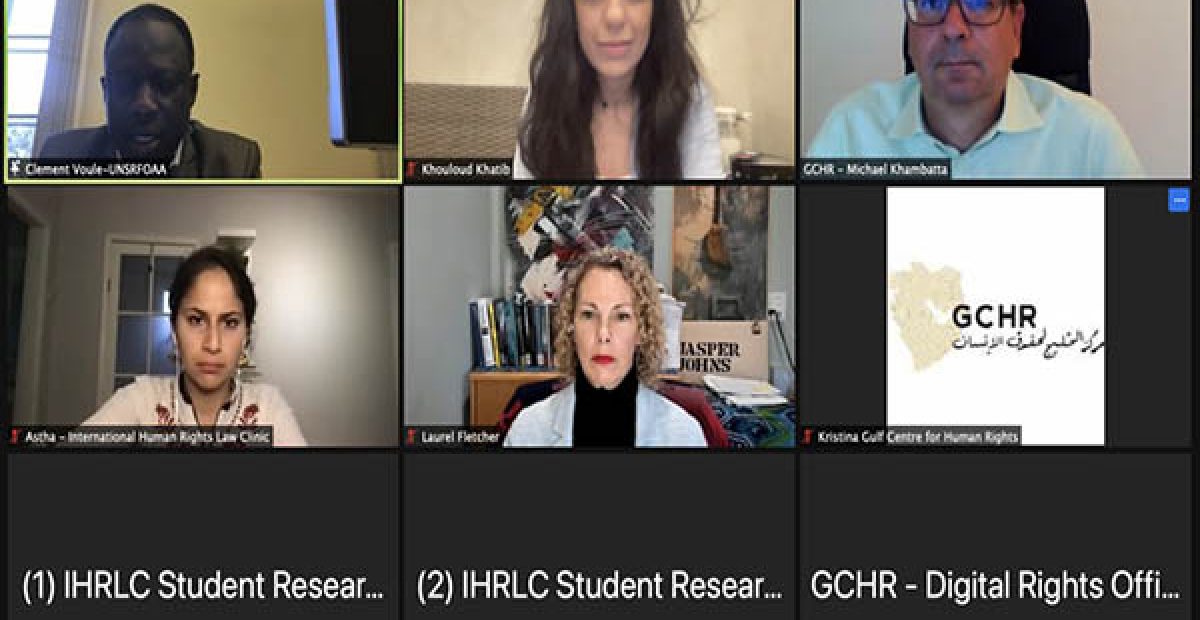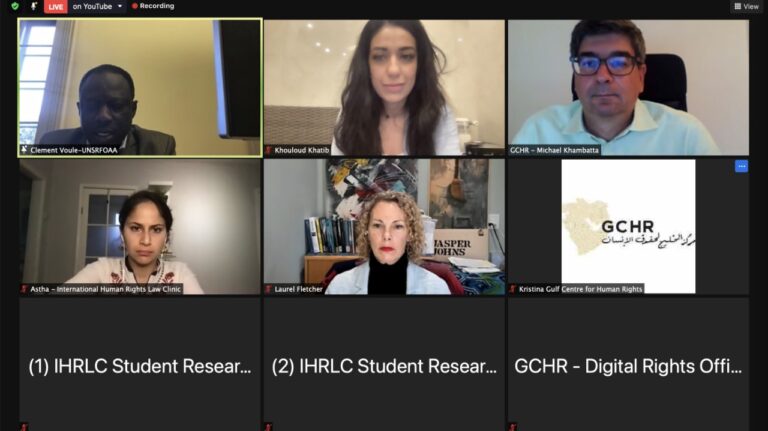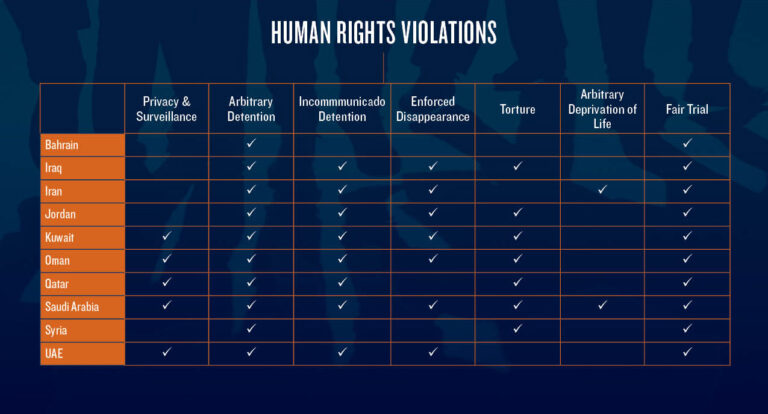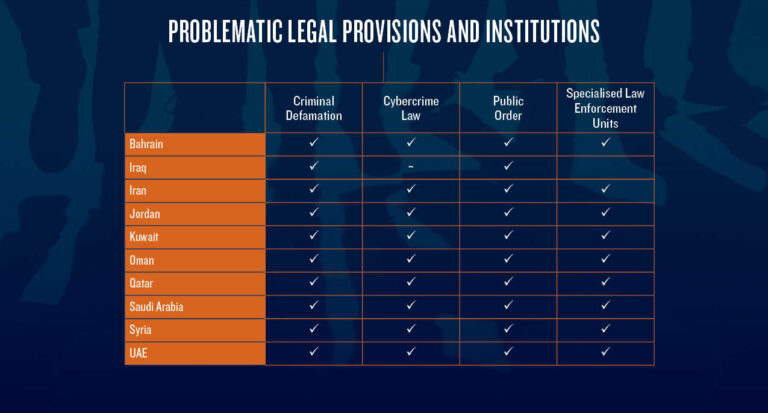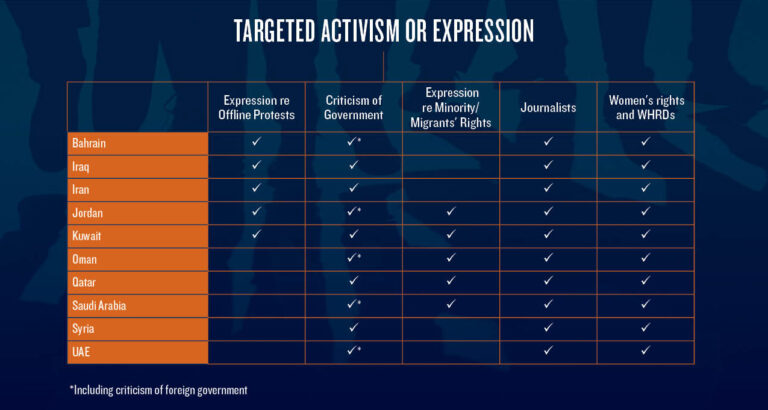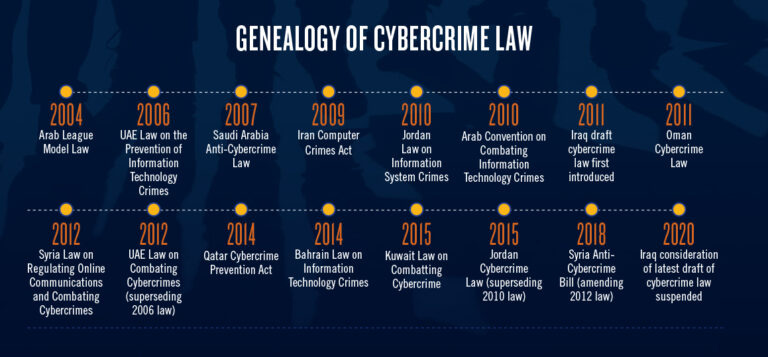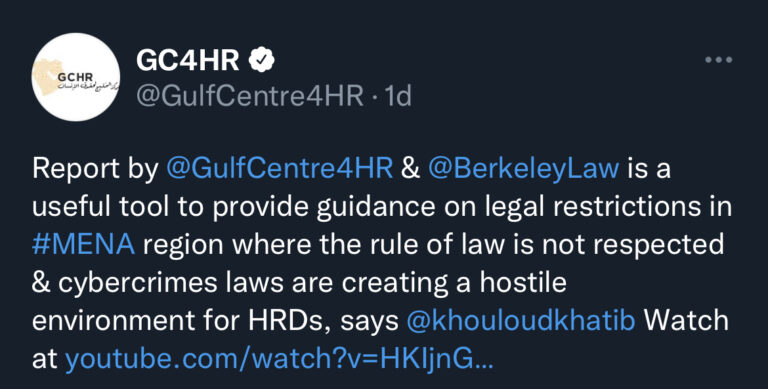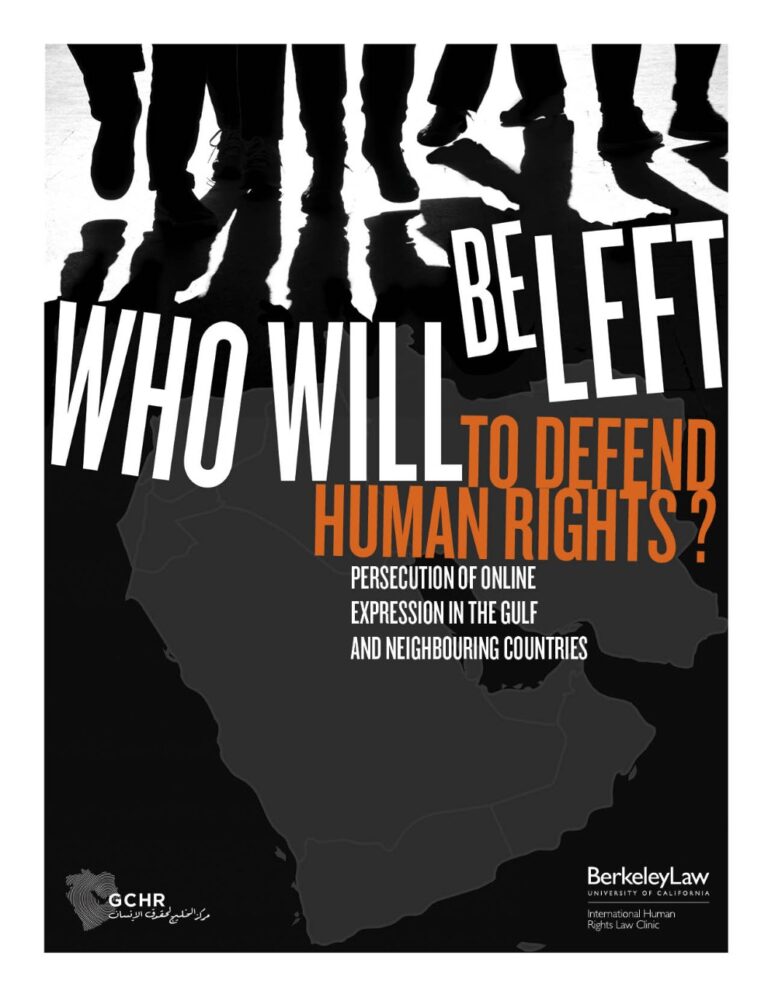.As Human Rights Defenders use online communications to organize, protest, and advocate for human rights, governments are adapting their laws and enforcement strategies to restrict expression.
It was an honor to take part in releasing the report on how Human Right Defenders (HRDs) in the Gulf region and neighboring countries face an increasingly hostile environment for exercising freedom of expression online.
This report was prepared by the Gulf Centre for Human Rights and the International Human Rights Law Clinic at the University of California, Berkeley, School of Law; it documents 225 incidents between May 2018 and October 2020, evidencing how governments in the region used anti-cybercrime and other laws, along with specialized law enforcement institutions, to criminalize online expression in violation of international law. The Data collected and the comprehensive approach in this research is considered valuable tool and resource for people working on and for the sake of human rights. It provides a very strong analysis of the legal system that combines the legal framework and the practical cases to determine a real evaluation. It is true that it does not capture all incidents of violations of the right to online freedom of expression that occurred during the period under study (violations against HRDs between May 2018 and October 2020 ) however, it indicates a clear pattern throughout the region on how governments seek to strictly control and limit the expression of which they disapprove. 225 incidents across 10 countries offer credible evidence of widespread and systematic persecution of defenders for online expression protected under international law.
We are in MENA in need of such in-kind research that provides very clear guidance on acceptable behavior adopted by states in light of the Universal Declaration, numerous conventions, treaties, courts jurisdiction, and commissions.
The reality tells the opposite, Human rights Government-led regulation of online space and fundamental guarantees of rule of law are not respected: anti-cybercrime and other relevant laws the ten States used to create a hostile climate for online freedom of expression of HRDs; This report indicated how HRDs are criminalized through laws or through judicial persecution to silence and punish them, their work and lives are being jeopardized. This trend has a detrimental effect on human rights, both online and offline. The 225 cases indicate to what extent governments violate the freedom of association rights of HRDs by targeting their online expression. Detention, Enforced Disappearances, and Torture, Surveillance, Online surveillance of HRDs was a common State practice.
But whose responsibility is it to tackle these challenges?
I believe the answer is all of the above, in partnership, with a sense of shared responsibility and ownership. We need a universal human response in defense of universal human rights.
The international human rights framework takes us further than ethics into a concrete, legal foundation on which States can build their responses in the digital age. Governments have obligations under international human rights law to protect people from harm resulting from criminal activity carried out through the internet. States that hold the primary duty to protect human rights and ensure remedies? Businesses that can change the way they work? International organizations? Academics? Journalists? Parliamentarians? Human rights defenders? NGOs and civil society groups?
Let’s call to eliminate laws and articles in national legal frameworks that criminalize online freedom of expression.

